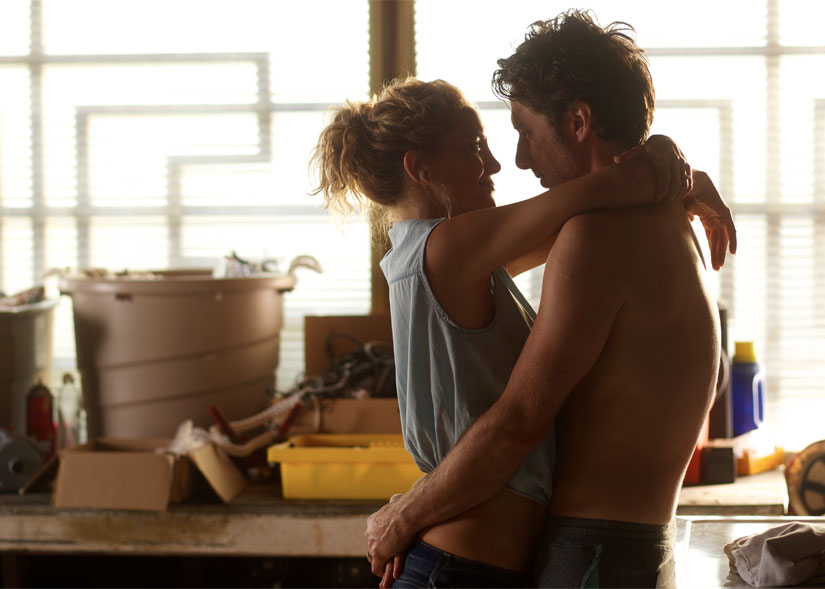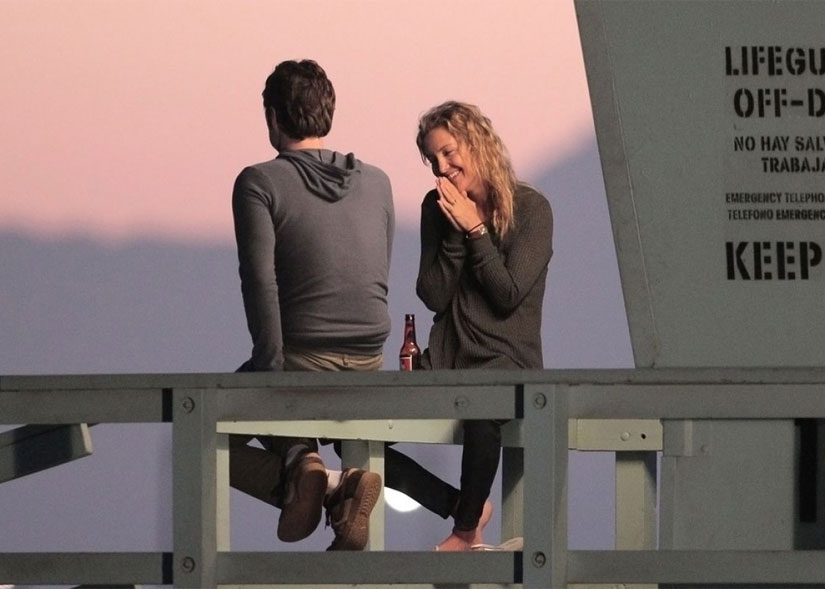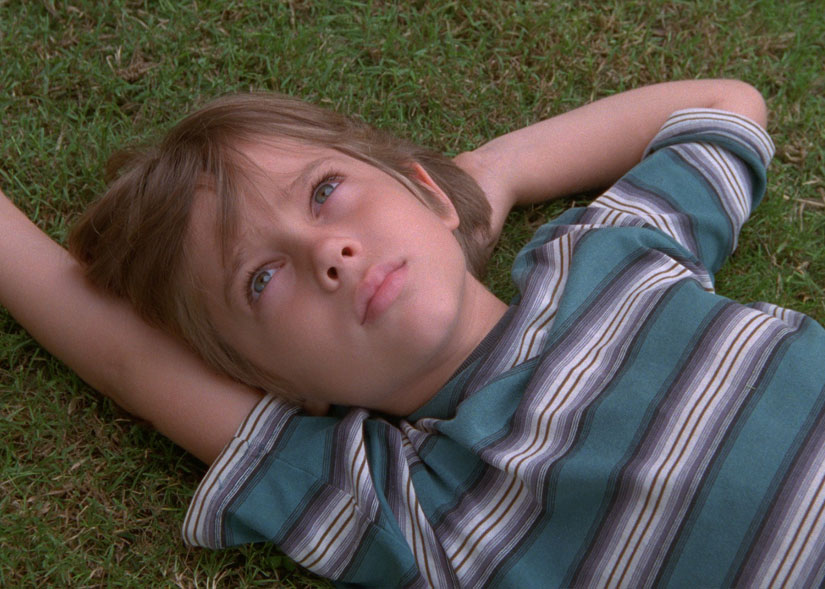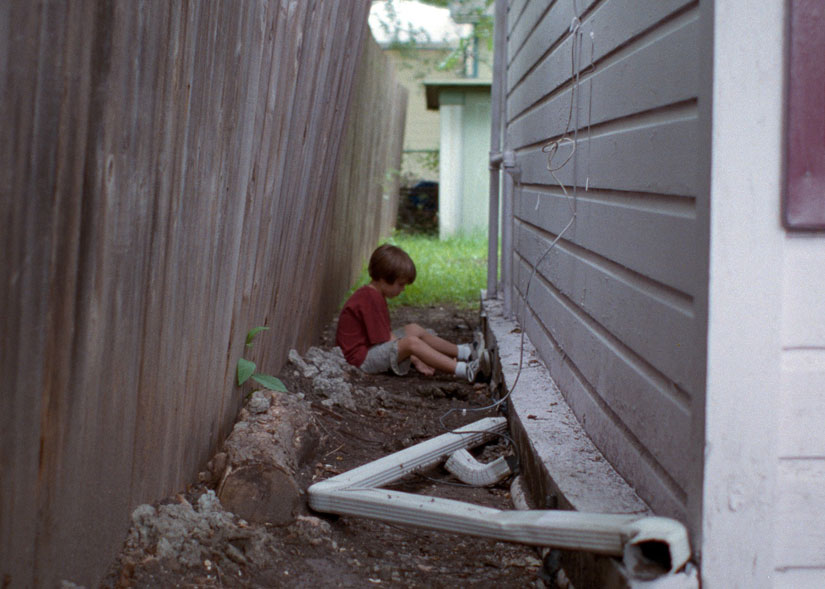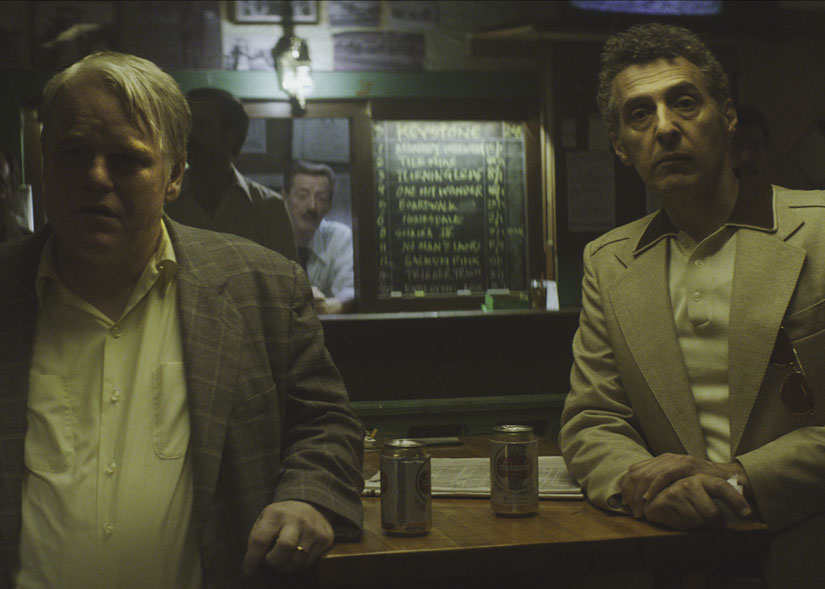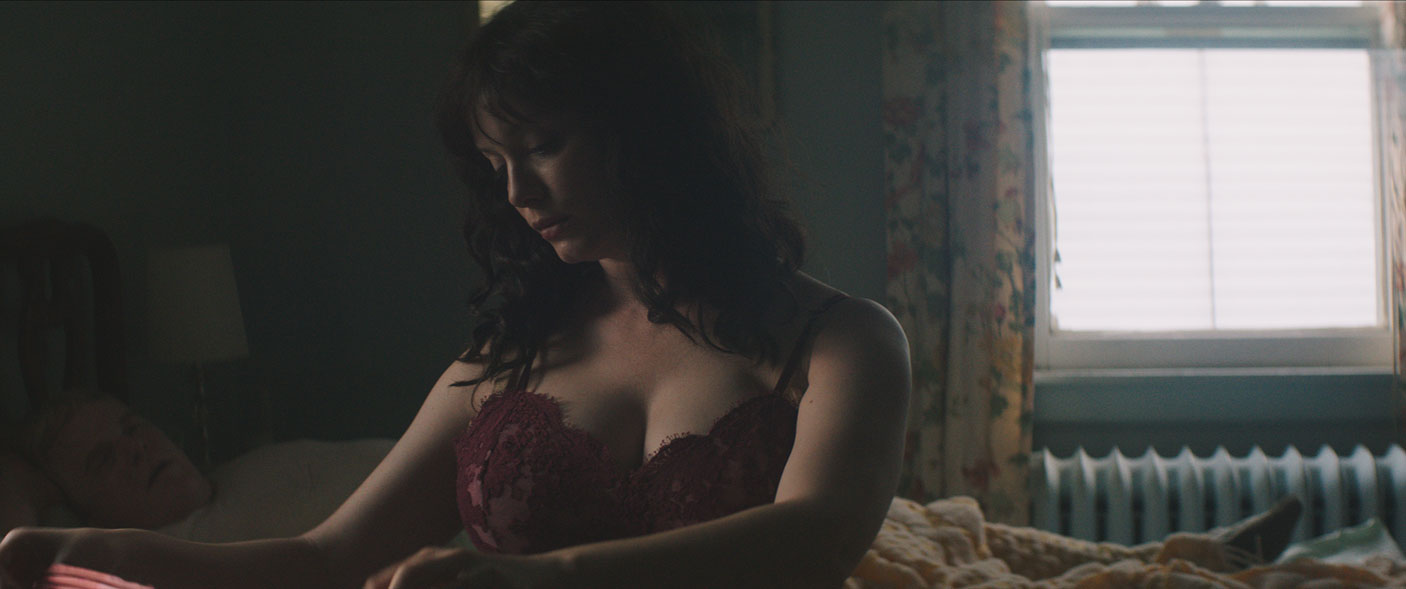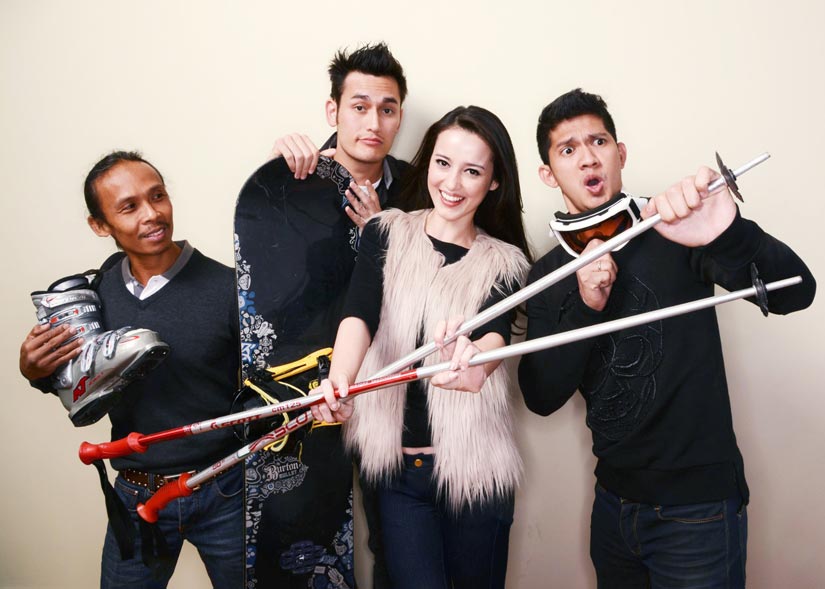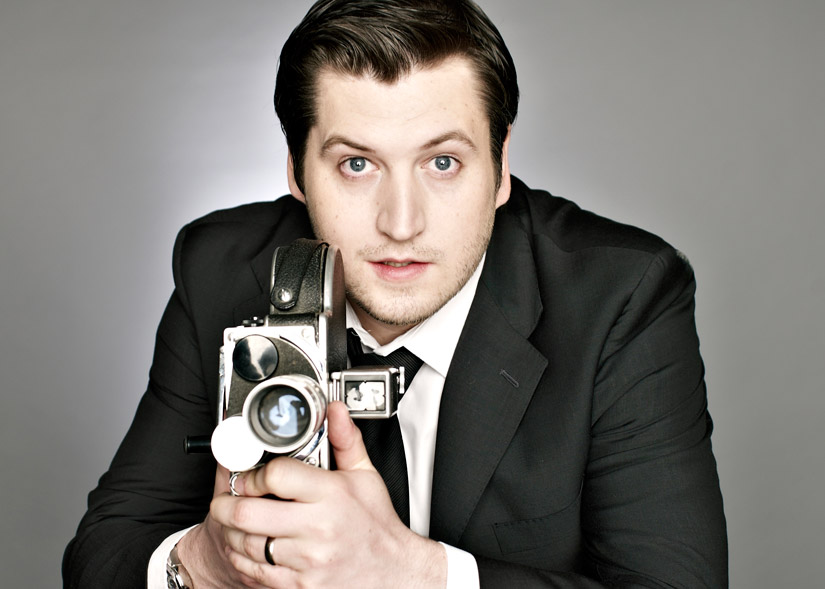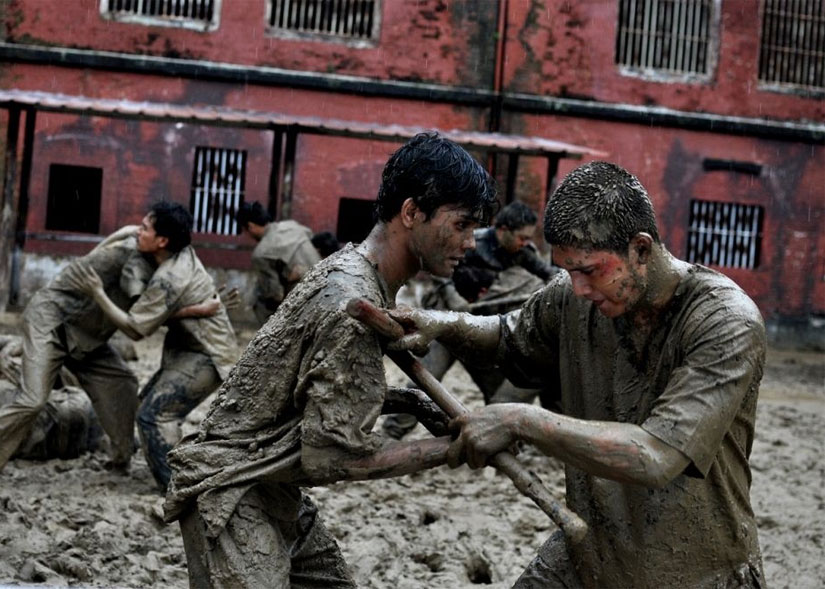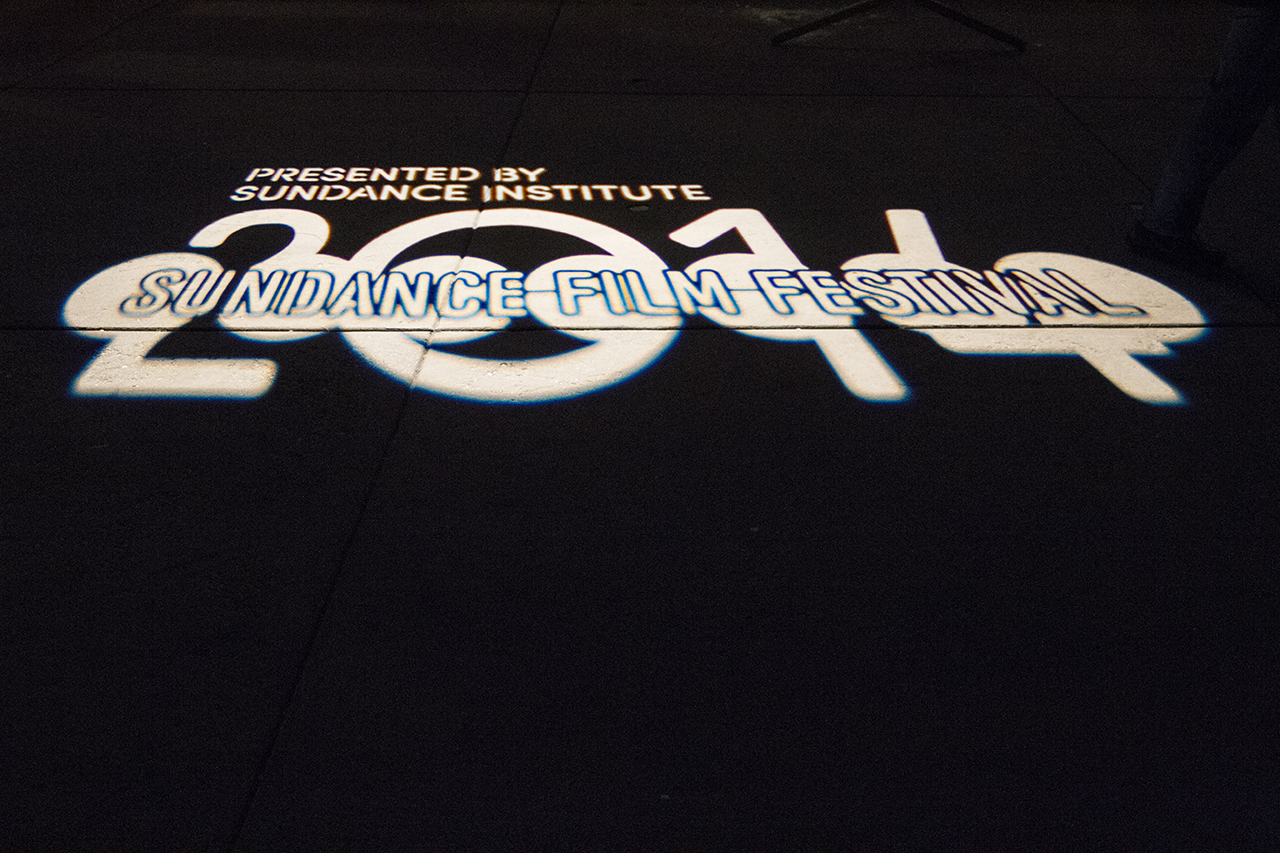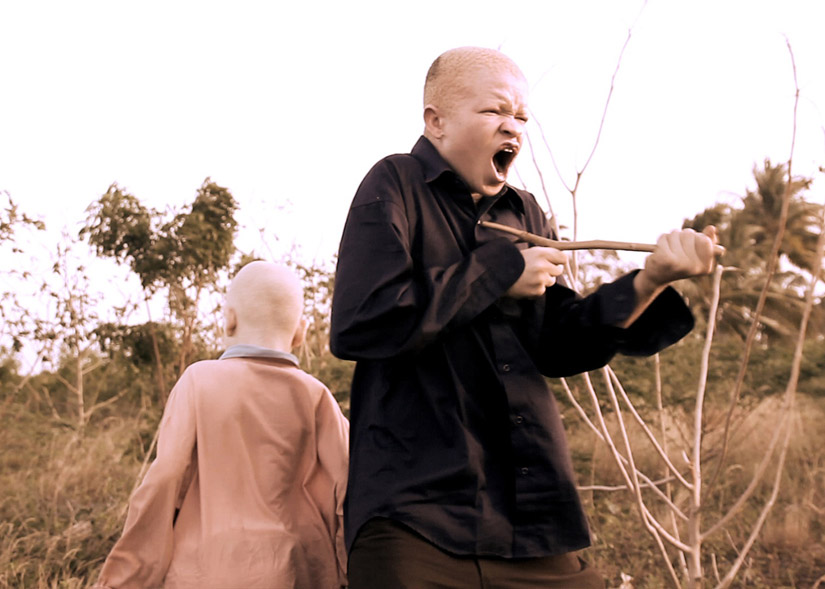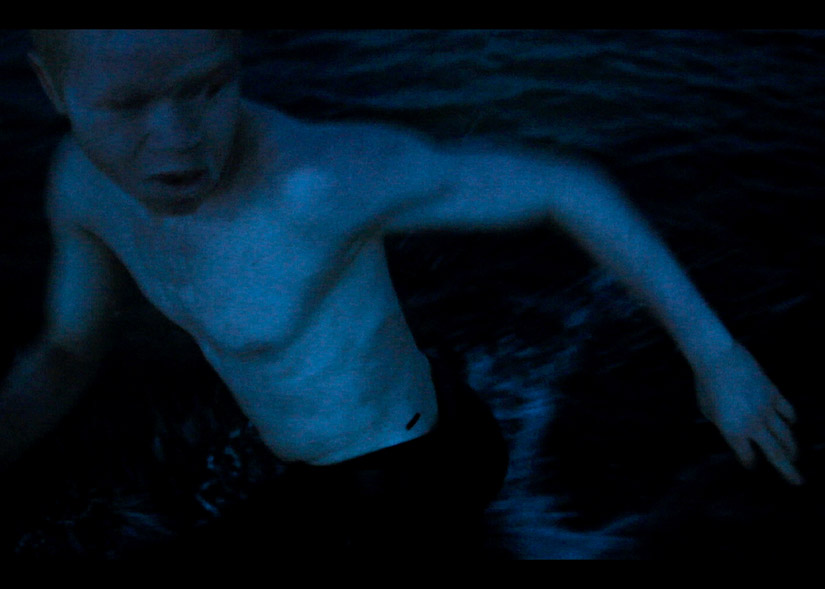[Review] Wish I Was Here
[To commemorate the limited theatrical release of Wish I Was Here, we are re-posting this review of the film from this year's Sundance Film Festival]
Wish I Was Here
Director: Zach Braff
Rating: N/A
Release Date: January 18, 2014 (Sundance)
Almost exactly 10 years after Zach Braff's surprise directorial debut won over both Sundance audiences and general film audiences, his sophomore feature, Wish I Was Here, premiered amidst a wave of excitement and controversy. Last year, the actor/director opened a Kickstarter campaign to fund Wish I Was Here and was met with backlash due to the decision and perceived notion that a "millionaire" shouldn't ask for public funding. Nevertheless, the pre-production of Wish I Was Here is but a footnote and not the focus of the film nor this review.
What does matter is this: 10 years after Garden State surprised audiences and critics alike, was Braff able to strike lightning with his sophomore effort, or was all of the good will that resulted from Largeman and Sam's whirlwind romance the pinnacle of Braff's writing and directing abilities? Read on and find out.
Aidan (Braff) and Sarah (Kate Hudson) are a couple living in LA with two kids, Tucker (Pierce Gagnon) and Grace (Joey King). Sarah supports the family while Aidan struggles to find work as an actor. His father, Gabe (Mandy Patinkin), also provides financial support, as well as pays tuition for the kids' enrollment in a Jewish school. However, when his cancer relapses and he gambles his money on a New Age treatment, Aidan is forced to homeschool the kids while juggling auditions. As Gabe's health begins to regress, Aidan's attempts to reunite his brother, Noah (Josh Gad), with their father go refuted.
Wish I Was Here has echoes of Garden State, especially with Aidan's fleeting success as an actor. While the previous film was a romance about discovering one's identity, Wish I Was Here is about family bonds. 10 years is a long time, and Braff's maturation as a director and storyteller show in the film. There are still a few distinct cues that Braff still follows (the most obvious being the music direction), which is welcome and familiar. However, some of the more ambitious touches in the film should have been cut. For instance, Aidan's noted as a daydreamer, illustrated by mixed live-action/CG scenes in which he imagines himself as a space explorer. These scenes are unwelcome distractions and detract from the story. The subplot involving Noah and his own self-discovery also feels rushed and not as fleshed-out as it could have been.
Wish I Was Here illustrates Braff's growth as an artist, and any fears of a sophomore slump were quickly dismayed. In saying that, the film feels very "safe." It doesn't outshine Garden State, but it isn't held back by it, either. There's definitely a sense of progression found in Wish I Was Here, both in Braff's writing and directing, and I wouldn't mind seeing him tackle both focuses head-on.
[Review] Boyhood
[To commemorate the limited theatrical release of Boyhood, we are re-posting this review of the film from this year's Sundance Film Festival]
Boyhood
Director: Richard Linklater
Rating: N/A
Release Date: January 19, 2014 (Sundance)
Richard Linklater is known for his style of filmmaking that focuses on the mundane. Conflict and narrative don't mean much to the writer/director, his preoccupations with film revolving more around the naturalistic approach to capturing real life and humanity. He's explored and experimented with cinematic techniques throughout his career, with the rotoscoping found in Waking Life and A Scanner Darkly to the long takes found in the Before trilogy being the most indicative of his interests.
However, Linklater raised the bar with his latest film, Boyhood. Shot over a 12 year period, the film is a linear exploration of a young boy's growth into an adult from the ages of 6 to 18 and the growing relationship he has with his father. It's epic in scope and, under the guidance of another director, might have bombed out early in production. Linklater's latest cinematic experiment blurs the lines between reality and fiction, narrative and documentary, and does so in a way that is never once intimidating or loses sight of its goal.
Boyhood follows the life of Mason (Ellar Coltrane) who, at the beginning of the film, is a six year old facing a sudden move with his mother (Patricia Arquette) and sister (Lorelei Linklater). Not long after arrival, the kids' estranged father (Ethan Hawke) re-enters their lives, promising to spend more time with them. The film then proceeds to track the next 12 years of Mason's life as he faces typical adolescent conflict such as girls, bullies, peer pressure, etc., to darker moments like his mother's abusive husbands. Each year is noted by little cues pinpointing which year the scene takes place in, mostly noted by audio cues of that year's popular songs.
Boyhood could be seen as a 12-year-long scripted reality show, not unlike the plethora of garbage infiltrating TV right now. However, the film is so much more than that. As Mason grows older, you can see how his younger self already had a sense of self-identity, and watching it manifest itself over the film's 164 minutes (yes, it's a long ride) is a gift. Linklater might have had an inkling of a narrative idea upon Boyhood's early beginning, but kept it flexible to adapt to Coltrane's life and how it progressed. In a way, there's a blurring of lines between when Coltrane began playing Mason and when Mason and Coltrane became one in the same.
What separates Boyhood from documentaries is that, despite the film's scope and approach, it's still very much a fictional narrative. The film represents a natural cinematic experience that's never once caught up by its artificial conflicts. I can't even begin to fathom the editing process Linklater and crew had to go through to boil down 12 years' worth of footage into a seamless feature; 164 minutes may sound like too much, but I personally didn't feel it one bit. What I did feel, however, was Linklater's patented focus on existential pontification is represented not only in Mason, but in the film's interesting approach; moreover, Boyhood retains a sense of nostalgia for the past decade, becoming itself a time capsule of '00s Americana.
Boyhood may not resonate with everybody, but it will certainly leave a lasting impression on every single person that watches the film. Linklater's ability to not only capture so much and have the ability to adapt every physical and emotional change within Mason/Coltrane into a cohesive fictional narrative is an achievement in and of itself. The film will be talked about for a long time, at first due to its interesting approach, but will hopefully be remembered by the sum of its parts.
[Review] God's Pocket
[This review was originally published as part of our SXSW 2014 coverage. It is being re-posted to coincide with God's Pocket's theatrical release.]
God's Pocket
Director: John Slattery
Rating: N/A
Release Date: January 17, 2014 (Sundance)
Dark comedies sometimes appear to be the easiest genre to work in. They can be gruesome, violent, brutal, unforgiving, eye-opening, over-the-top, exaggerated, complete satires of a film that, for better or worse, get a bit of a pass due to its branding. Is this lazy? Perhaps. When done right, we get films like Pulp Fiction and Reservoir Dogs. Mishandled, however, and the result is like the endless amount of straight-to-DVD films that have followed in Vincent and Jules' wake.
With his feature length directorial debut, John Slattery (Mad Men's Roger Sterling) delivers God's Pocket, a neighborhood-driven film in which an assortment of pratfalls present conflicts to the characters in precarious manners. Which side of the "dark comedy" spectrum does God's Pocket fall on? Read on and find out.
Mickey (Philip Seymour Hoffman) is a God's Pocket transplant, a small neighborhood in Philadelphia where the natives stay native generation to generation. He runs small-time jobs with his friend (John Turturro) for a mob-esque figure, his wife, Jeannie (Christina Hendricks), doesn't care much for him, and his step-son, Leon (Caleb Landry Jones), is a racist pig. When an altercation at Leon's job leaves him dead, Jeannie's Motherly intuition suspects something is amiss. While Mickey turns to his mob friends for help, a famed local reporter (and heavy alcoholic), Richard Shelburn (Richard Jenkins) takes it upon himself to discover the truth... and much more.
The focus of the film isn't so much on Leon's death, but on the various characters residing in God's Pocket. Everybody from the funeral director (Eddie Marsan) to the local barkeep portray not characters, but caricatures that play into the overall plot... for better or worse. The problem is that, outside of Hoffman and Turturro, every character is a gimmick, an empty shell lacking real personality or character. The tone of the film shifts between a dark comedy and a psuedo-noir genre, but isn't able to find its identity. It's unfortunate, too, because Hoffman's performance in God's Pocket is great in spite of the uneven writing.
[Sundance Interview] Arifin Putra and Julie Estelle (The Raid 2: Berandal)
[Ruby Hornet will be at Sundance Film Festival 2014 providing coverage of the festival's 30th year. Keep it tuned to Ruby Hornet this week as we share reviews, interviews, photos, and more at one of the country's largest film festivals.]
Header photo via Getty Images
Following my roundtable interview with The Raid 2: Berandal director Gareth Evans, Berandal stars Arifin Putra (Ico) and Julie Estelle (Hammer Girl) sat down to chat with my group about the film. Despite the light-hearted conversation, we probed the actors about their experience on the film, specifically asking about their training regimens, comfortability working with Gareth, the long wait for Berandal to begin production, and much more. Of course, we threw some fun questions in there, like their favorite action films (spoiler: Kill Bill 2 isn't one of them).
As always, major spoilers for The Raid 2: Berandal are sprinkled throughout the interview, so read at your own expense. Enjoy!
[Sundance Interview] Gareth Evans (Director of The Raid 2: Berandal)
[Ruby Hornet will be at Sundance Film Festival 2014 providing coverage of the festival's 30th year. Keep it tuned to Ruby Hornet this week as we share reviews, interviews, photos, and more at one of the country's largest film festivals.]
It's no secret that I and the majority of the Ruby Hornet staff are huge fans of Gareth Evans' The Raid: Redemption. The sleeper hit made major waves across film communities with its unabashed love for martial arts and tight storytelling that complemented the action rather than took away from it. Redemption was the little film that could, making more than 20x its budget, as well as garnering very favorable reviews from critics. When The Raid 2: Berandal was announced, excitement over the expansion of the film ran high, with many salivating at the promise of "more," in all senses of the term (budget, runtime, characters, fight scenes, etc.). My review highly regarded Evans' second film of the franchise, Berandal representing everything right when it comes to a film sequel.
During Sundance, I had a chance to sit down the director himself alongside a few other esteemed film journalists as we racked his brain with questions ranging from how fight scenes were planned, the editing process for the film, his influences behind Berandal, and much more. If you were a huge fan of The Raid: Redemption and can't wait until The Raid 2: Berandal hits theaters next March, I highly recommend reading through the interview for more insight behind one of the year's most anticipated films. However, a word to the wise: there are Berandal spoilers, so be cautious!
[Review] The Raid 2: Berandal
[To commemorate the limited theatrical release of The Raid 2: Berandal, we are re-posting this review of the film from this year's Sundance Film Festival]
[iframe id="http://movies.yahoo.com/video/39-raid-2-39-trailer-174145921.html?format=embed&player_autoplay=false"]
The Raid 2: Berandal
Director: Gareth Evans
Rating: N/A
Release Date: January 21, 2014 (Sundance)
The Raid: Redemption practically came out of nowhere and introduced me to a new form of action films. From the completely visceral cinematography capturing every bone break and ounce of gushing blood to the introduction to pencak silat, a form of Indonesian martial art that is as brutal as it is beautiful to watch. Where The Raid: Redemption lacked in story and narrative, it more than made up for in immensely entertaining and awe-inspiring fight sequences. What made the film so successful is not the aforementioned fight scenes, but because of writer/director Gareth Evans' tight focus, with the film taking place almost exclusively inside one apartment building complex.
Following on the heels of Redemption, The Raid 2: Berandal expands on the narrative, introducing audiences to the world outside of the Jakartan slums. Redemption's protagonist, Rama (Iko Uwais), turns to a senior officer to report on the events of Redemption and to take down the city's corruption once and for awhile. In order to do that, he's ordered to go undercover and infiltrate the ranks of one of the largest mob syndicates run by Bangun (Tio Pakusadewo) by befriending Bangun's son, Uco (Arifin Putra), in jail. Before long, tensions escalate into a gang war in which nobody is safe.
The plot of Berandal can be a bit confusing and overwhelming, especially for those who haven't seen Redemption yet. Where Redemption thrived in its small scale, Berandal grows the universe and storyline exponentially, introducing a myriad cast of characters. Once past the early confusion, however, the film finds its narrative stride as Rama navigates the criminal underworld. The themes are endless in Berandal, with father/son dynamics, revenge, and redemption being the most noticeable themes purveying the film. Evans' writing in Berandal is sound; whereas I had my concerns that such a large expansion would muddle the overall film, those thoughts were quickly erased in the film's first act. While Rama is the center of the action, Uco is the center of the drama, and Putra's performance is enough to sustain the plot in between fights. Most action films leave audiences just wishing for the story-driven scenes to hurry up; Berandal never lets the tension go, whether it's in the form of a fight or a plot-driven sequence; needless to say, the pacing is spot-on and near perfection. However, in saying that, the film's true bread and butter is in the action scenes.
Simply put: WOW. I don't know how Evans and his team of choreographers did it, but literally every action sequence has at least one moment where you can't help but drop your jaw in awe, surprise, excitement, entertainment, disbelief, fright, happiness, etc. I don't want to spoil anything too specific, but Berandal features one of the greatest car sequences you'll ever see in a film. If you thought you saw it all in Redemption, wait until you see Berandal; much like how the plot is expanded upon in the sequel, so too are the fight sequences. They're visceral, desperate, entertaining, and above all else, as brutal as you can imagine. With a shaky cam, each attack is accentuated with a camera shift, each throw is met with a tumble, etc., proving just how well the cinematography complemented the fights. It can be dizzying at first, but it just adds to the entire experience. The fight sequences become more nuanced and elaborate as the film goes on; there's also an evocation of classic video games (Mega Man comes to mind) where Rama will rush through grunts, meet somebody with a sense of a challenge, then finally ends with a pseudo-boss fight.
If you loved The Raid: Redemption, you're going to find yourself enamored with The Raid 2: Berandal. It's bigger, better, and more badass in every way possible, just like every successful sequel should be. Words simply won't do this film justice. Watch Berandal the first chance you get - you can thank me later. While it may be too early to tell, the The Raid franchise just might be the next greatest action film franchise... so long as Evans and his team stay on board.
[Sundance] Sundance Film Festival 2014 Recap
[Ruby Hornet will be at Sundance Film Festival 2014 providing coverage of the festival's 30th year. Keep it tuned to Ruby Hornet this week as we share reviews, interviews, photos, and more at one of the country's largest film festivals.]
We came. We saw. We conquered. Ruby Hornet's first trip to the Sundance Film Festival was... interesting, to say the least. After almost a decade of dreaming about attending the prestigious festival, I finally got my chance to have the Sundance experience. It wasn't everything I thought it would be, but for every misstep, there was a silver lining found in the assortment of films playing over the festival's duration. Considering the amount of films playing, with many of them having their world premieres at the festival, there was something to love for all film fanatics. With over a dozen of film reviews, a couple of interviews, and a slew of photos and other assorted shenanigans, I'd say Ruby Hornet had a solid maiden voyage to Park City, UT. In case you missed everything over the past couple of weeks, check out all of our Sundance-related coverage below.
REVIEWS
[Sundance Review] Camp X-Ray
[Sundance Review] Boyhood
[Sundance Review] God's Pocket
[Sundance Review] The Skeleton Twins
[Sundance Review] Cooties
[Sundance Review] The Raid 2: Berandal
[Sundance Review] To Kill a Man (Matar a un hombre)
[Sundance Review] Infinitely Polar Bear
[Sundance Review] Kumiko, the Treasure Hunter
[Sundance Review] Wish I Was Here
[Sundance Review] Life After Beth
[Sundance Review] White Bird in a Blizzard
[Sundance Review] White Shadow
INTERVIEWS
[Sundance Interview] Gareth Evans (Director of The Raid 2: Berandal)
[Sundance Interview] Arifin Putra and Julie Estelle (The Raid 2: Berandal)
EVERYTHING ELSE
Tintype Photographs of Celebrities at Sundance
[Sundance Video] The Raid 2: Berandal Q&A, Iko Uwais pencak silat demonstration
Sundance Film Festival 2014 Award Winners
[RH Photos] Sundance Film Festival 2014
[Sundance Review] White Shadow
[Ruby Hornet will be at Sundance Film Festival 2014 providing coverage of the festival's 30th year. Keep it tuned to Ruby Hornet this week as we share reviews, interviews, photos, and more at one of the country's largest film festivals.]
White Shadow
Director: Noaz Deshe
Rating: N/A
Release Date: January 17, 2014 (Sundance)
After witnessing the brutal murder of his father, Alias is sent off by his mother to live with his uncle, Kosmos, in the city away from their small shanty town. While he hustles drivers at busy intersections to buy various wares and technological parts, Alias faces torment from those around him due to his albinism. As Kosmos faces problems of his own, Alias finds a safe place to stay in a special home for albino children... until the unthinkable happens.
White Shadow deals with the rise in albino murders in Tanzania where witch doctors would pay large amounts of money for albino limbs due to their "magical powers." The film isn't some counter-active, social commentary on the practice; rather, it paints a fictional narrative around the unfortunate realities that Tanzanian albinos face.
The main problem I had with White Shadow was how it lacked direction for the majority of the film. The beginning of the film is a whirlwind of confusion, the middle begins to take form while still being intercut with flashbacks (flash forwards? side flashes?), and the final act throws it all together in an intensely violent rush. However, as gripping as the final act is, it's not enough to make up for the confusion and slow moving of the first two acts.
The subplot involving Alias and Kosmos that made up the majority of the film began to gather steam, only to be displaced by Kosmos' own narrative arc. In a way, the two are intertwined, both narratively and thematically, as they both face an unsure future as wanted men - Alias for his albinism, Kosmos for his debt. It's a compelling duality that represents something deeper that the film could have latched on to if only it were a bit more focused and refined. As it stands, however, White Shadow is simply a shadow of what it could have ultimately been.

